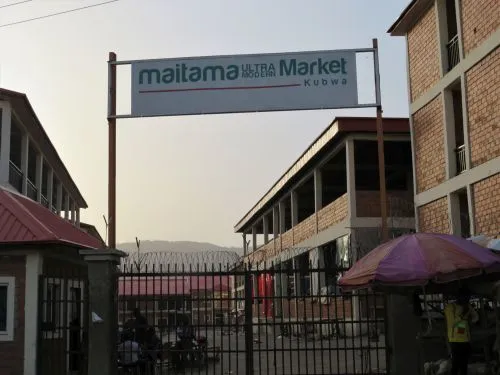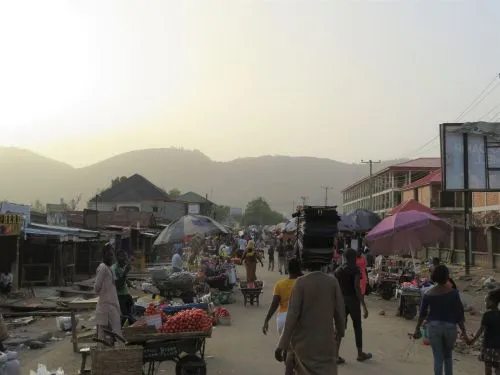Coping with COVID-19 in post-conflict communities.
Part 1: Covid-19’s impact on West Africa’s vulnerable communities
Blog post by Oyewole Simon Oginni*)
As the novel corona virus (Covid-19) outbreak continues to have ravaging effects on every aspects of our daily lives, the demands for a global approach to prevent its further spread have grown rapidly too. Among the notable preventive measures, which have been adopted since the Covid-19 outbreak in Wuhan, China, in the beginning of 2020 are the restrictions on movement of people within and across the national borders and the enforcement of social and physical distancing. These preventive measures have been enforced in most developed countries, especially in the major cities in Europe and China, which have been the epicenters of the Covid-19 crisis. In developing countries, the enforcement of the lockdown order has met a lot of resistance, especially in ‘the hand-to-mouth’ communities, where people go out daily to feed themselves and their families.

Lockdown: what does the Covid-19 response tell us about West Africa?
Due to the fewer reported cases of Covid-19 in Africa, about 22,333 as of April 19, 2020, the lockdown policy was implemented a bit later than on other continents. However, as the number of reported Covid-19 infections rapidly rises, lockdown and social distancing are being increasingly enforced across the continent. Some governments started imposing a lockdown in the major capital cities and then gradually extended it to the hinterlands, with a stay-at-home order and the promise of palliatives to cushion the effects on the vulnerable population. However, given the widespread poverty, in addition to economic and health inequalities in most African countries where lockdown policies have been implemented, there is a growing concern about how the vulnerable communities will cope with the restrictions of movement for issued for longer periods of time. This raises the question: how prepared are people living below 1 USD per day for a partial or complete lockdown?
Lockdown policy: Sociality, civility, and economic security
Across the continent, the lockdown policy has had some immediate impacts on social relations, civility, and the economic security of the urban poor. The Shoprite, one of the largest supermall chains in Africa, just announced that it was considering a shutdown of its operations in Nairobi (Kenya) and laying off about 142 workers by May 2020. The announcement confirmed the recent African Union (AU) study, which projected that 20 million jobs could be lost in Africa due to the Covid-19 outbreak while foreign direct investment may decrease by 15%, if the Covid-19 outbreak will not be managed well.
In the last few weeks, there have been reported cases of civil disobedience in some major West African cities under lockdown. These were mainly citizens who ignored the lockdown orders to fend for themselves and their families. People still find their way to marketplaces in defiance of governments’ stay-at-home orders. During the few days the Federal Government of Nigeria allowed us to go shopping in Abuja, I visited the nearest market (Maitama Int’l Market) and interacted with a few market women. I asked if they intended to observe a stay-at-home order. The market women replied: “Only the rich, especially the public officials, can stay at home.” One market woman selling vegetables responded: “Can you feed me? I must eat every day; so, I have to come to this market daily to sell vegetables. Whenever the police come here, we run away and then return later to sell our vegetables. They sometimes destroy our goods, but I have no option now. Our government is careless about its citizens’ welfare, so we have to live like that.” (Translated from Yoruba Language)

Lockdown: Increased criminality among the urban poor
Most African cities have slums as a defining characteristic. These slums are known for hosting the urban poor who cannot afford the expensive rent in the urban centers, but also for being a hotbed for criminality. In the last few weeks of lockdown, from Lagos to Abuja to Accra and Niamey, crime rate is growing fast as many people engage in criminality during the lockdown. Criminals also take the advantage of the stay-at-home order to break into shops and supermarkets. In response to the criminality and defiance of the lockdown order, the police deployed to enforce the lockdown order also brutalize their citizens. BBC reported that more people had been killed by the Nigerian security forces than by the Corona virus.
Lessons from an arbitrarily lockdown policy
Although the arbitrarily lockdown policy may have slowed down the speed of the Covid-19 spread in West Africa, it also has the ripple effects on the livelihoods of informal communities. It is important to assess the preparedness of the urban poor for a lockdown before such a policy is implemented.

This may require preliminary grassroots awareness about the risks of Covid-19 and the mapping of the basic needs of the urban poor. Presently, Ghana has abandoned its lockdown policy, despite having about 1,000 reported Covid-19 cases, which is the highest figure in West Africa. Whether the country’s new approach will address the deeply rooted challenges that the urban poor face during this pandemic, or not, will depend on several factors, including how the country is able to scale up testing, enforce social distancing and provide enough palliatives to discourage people from non-essential travels.
*) About the author:
Oyewole S. Oginni is a junior researcher at the Center for Development Research, University of Bonn. He just completed his doctoral fieldwork in Maroua (Cameroon) and Mubi (Nigeria), where he focused on security-humanitarian-development nexus in post-conflict cities.
» Also read: What does a lockdown entail in the Lake Chad Basin region?


